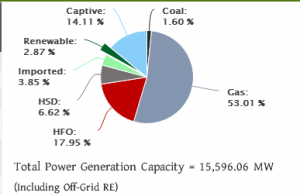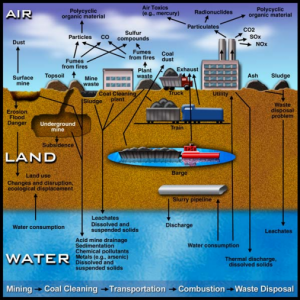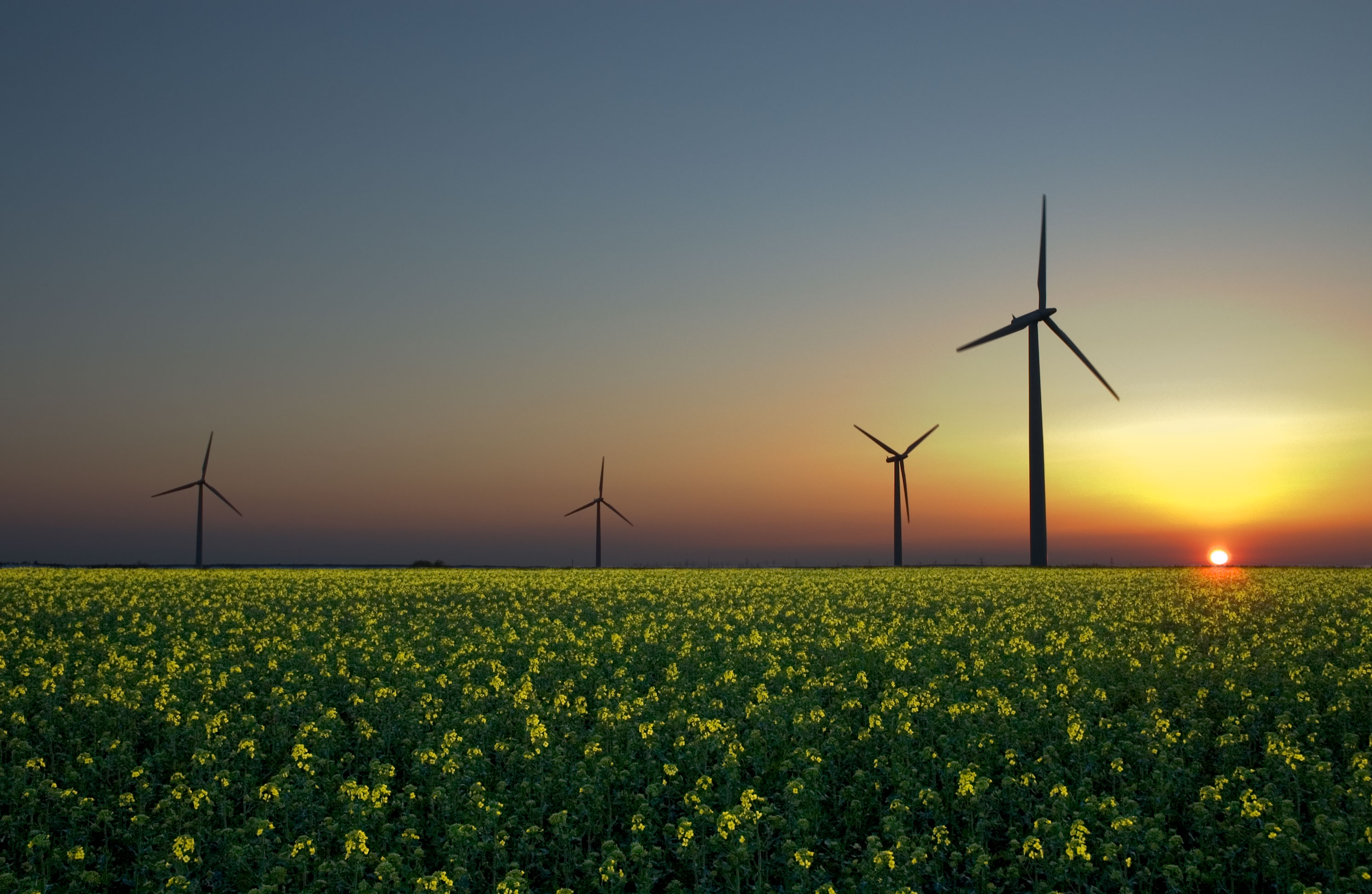Bangladesh is a developing country in South Asia is one of the potential countries with its geographical location and natural heritage but at stake due to climate impact. As a developing country with an amount of population, its demand for energy is growing fast. Besides, it’s one of the worst vulnerable countries already experiencing climate impact. Monsoon flooding, soil salinity, infertility of the land, land-slide collapse, and waterlogging are regular phenomenon nowadays in Bangladesh. Moreover, the recent Rampal Coal Project near Sundarbans raised debate over sustainable solutions for energy policy among people. Which one is actually feasible and the best source of energy in Bangladesh?
Since the Industrial Revolution in the 18th century, humans started to use natural resources to produce energy. Woods, timber, and waste were the energy producers at that time. Gradually, we explored fossil fuels. The wide use of fossil fuels not only degrades the environment but also exaggerates state tension over time. The conflicts in the Caspian Sea, MENA region, and the South China Sea are nothing but interests over oil and gas. So, Sustainable Energy Production could be the all-inclusive solution of global peace and security.
What is Sustainable Energy Production?
Sustainable Energy Production is a way of continuous energy production without harming the environment and public health. The fossil fuels are limited in amount and cause environmental degradation but you know that Sun never stops raying, oceans and rivers never stop tiding and the wind never stops blowing. That’s why Solar Power, Wind Power, and Tidal power are counted as Sustainable Energy Production. There is another model that has been added in Sustainable Energy Production, that is the “Geothermal Energy Production System”. We know the Earth produces heat; the process uses this heat to produce energy.
A global perspective on Sustainable Energy Production
Before analyzing the perspective in Bangladesh, let’s have a look at the global perspective. Sustainable Energy Production has become a “Global Reality” for decades as fossil fuel and biomass has been expensive and harmful. Gradually sustainable solutions are replacing the traditional energy production system. It’s more affordable and reliable than any other system. United Nations already has included sustainable energy in the name of “Affordable and Clean Energy” in Sustainable Development Goal (SGD). Asia, Europe, Africa, America, and the Pacific regions are installing solar, wind, geothermal projects gradually. Comparatively the Middle East is at the bottom of the list. China has initiated a wide range of initiatives to replace coal projects in 2016. India has installed the world’s largest solar power projects in Rajasthan. Turkey is the top listed country in geothermal projects. Japan has bounced back to sustainable and renewable energy production after “Fukushima Tragedy”. Australia has started to use its wind and tidal power to produce energy. International Renewable Energy Agency says that more than 170 countries have already installed sustainable energy production and 150 countries are on the way. Sustainable power generation is now the first-choice option for expanding, upgrading, and modernizing power systems around the world.
The overall perspective in Bangladesh
Bangladesh is an emerging economy with potential growth for decades. Its developing situation has created more demand for energy production exponentially which has made two folded problems for her. She has to keep pace with her current development activities along with combating environmental degradation. But the core problem is that, to sustenance current demand govt. has become more dependent on oil, gas, and coal-based energy production system which is making long-term social & environmental effects. Moreover, it has been projected that oil and gas reserves are near to be empty within 2030. On the other hand, energy deficiency is 20% and about 50% of the people are yet to have electricity. The scarcity of oil and gas, massive destruction of the coal-based power plants will make the situation complex indeed.

The road to Sustainable Energy Production
Bangladesh is a potential country to Sustainable Energy Solution for its geographical location. She receives an average of 4-5 kWh/m² solar radiation in the range daily. The radiation is available most of the time in a year. Govt. has initiated several projects to install solar plants. According to Sustainable Energy Authority of Bangladesh, govt. has supplied 4.5 million solar systems under the project of Solar Home System (SHS) since 1996. Some other govt. and no-govt. offices have also been installed solar system during this time. The writer of this article also witnessed the spread of solar system in the Chittagong Hill Tracts in February 2017. It’s a great progress to an off-grid power solution. But, there are allegations that the initiative hasn’t achieved expected progress due to corruption and lengthy process of bureaucracy. The lack of authoritative integration is also visible.
Bangladesh is situated between 20O34′-26038 North Latitude and 88001′-92041′ East Longitude. The country has a 724 km long coastline and many small islands in the Bay of Bengal, where strong south-westerly trade wind and sea-breeze blow in the summer months, and there is gentle north-easterly trade wind and land breeze in winter months. It’s a potential location for wind power energy production. The wind is enhanced when it enters the V-shaped coastal regions of our country. Historically, the mechanism used on the region from ancient time to grind crops and to sail ships. There are two wind power projects in Bangladesh. These are located in Feni and Kutubdia. The wind power projects are in under assessment yet in Bangladesh. The wind projects are also under hope as both projects produce 200 MWh and 230 MWh respectively from a 250 KW station respectively. Besides, small wind power plants are also being installed by BRACK and Grameen Shakti. Lack of updated policy framework, advanced scientific research and natural calamities are the barriers to spread wind energy production.
The Karnphully Hydro Power project is the first initiative to Sustainable Energy Production in Bangladesh. It’s one of the prime energy suppliers in Bangladesh. But it has some political criticism regarding ethnic issues and the project has also been reported to effecting the environment.
The nuclear, tidal, and geothermal process is under R&D in the perspective of Bangladesh. The problem with nuclear projects is high expensiveness. The Ruppur Nuclear Power Plant is also about tripled its projected expense.
The tragedy of traditional energy production system
Of all fuel, coal is seen to be dirtiest all over the world. While the world is replacing coal-based energy production to Sustainable Energy Production, Bangladesh’s installment of another coal-based power plant is frustrating. Its long-term effect is reported by most prominent researchers. Coal releases numbers of devastating toxic elements into air, water and land. It can cause infertility of land, decline of biodiversity, degradation of public health, salinity of water and total destruction of habitat. Its effect on air is very devastating that it releases CO, CO2, SO2, NOx, CH4, Hg and Particular Matters which can cause of skin diseases to cancer. According to a research paper by Green Peace, coal-based power plants reduce more than 60 hazardous pollutants to air. A research paper by International Research Journal of Environment Sciences says that the fly ashes by coal-based power plants are so acute that it can break the walls of lungs and transfer to the blood plasma of cells.

The Rampal Power Project is rejected by mass people, researcher and climate activists. We have already discussed it in another article on Sundarbans. Regrettably, there are no alternative of Sundarbans which is regarded as lung of Bangladesh. We have already witnessed the devastating socio-economic and environmental impacts of Barapukuria coal project.
Case Study: Sustainable Energy Production in Developing Countries
Most of the developing countries are replacing traditional energy production with sustainable energy production. China, India, Brazil, and African countries are rapidly installing sustainable energy production systems. Kenya could be notable for most. It has already become a role model for developing countries for sustainable energy production. The Kenyan govt. has installed more than 30,000 solar panels and initiated public-private partnerships to increase off-grid power supply.
Policy Recommendations:
- should regulate a sustainable energy policy with a team made of researchers, think tanks, environmentalists, youth entrepreneurs, investors, and social leaders.
- To incent sustainable govt. should ease bureaucratic formalities relating to sustainable energy progression.
- should invite national and international investors to invest in sustainable energy production with easy tariffs.
- A social business model could be initiated to spread sustainable energy production
- Another form of energy production like energy by garbage & waste could be increased.
- can initiate hybrid like solar-wind power project.
Conclusion:
There were stereotypes about Sustainable Energy Production are that the way is expensive and not able to produce adequate power. But the notion has been changed with scientific research. For example, the cost of solar PV panels reduced more than 60% in the last 3/4 years. Now, it’s high time to boost up our society and economy with a prudent policy with sustainable development. To acquire sustainable development, we just need to spread Sustainable Energy Production. Bangladesh already proved herself in a leading position in climate voice. The govt. of Bangladesh has regulated Climate Change Strategy and Action Plan 2009. Prime Minister of Bangladesh has been awarded as “Champions of the Earth”. To have acceptability, she must boycott coal-based and other power plants and move towards a Sustainable Energy Production System.
Sharif Mustajib Editor, Voice of International Affairs
